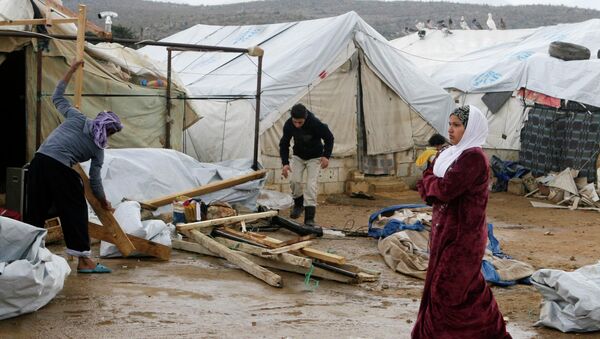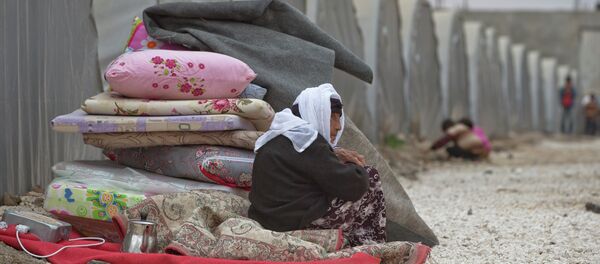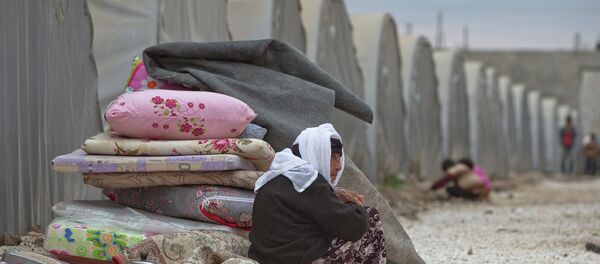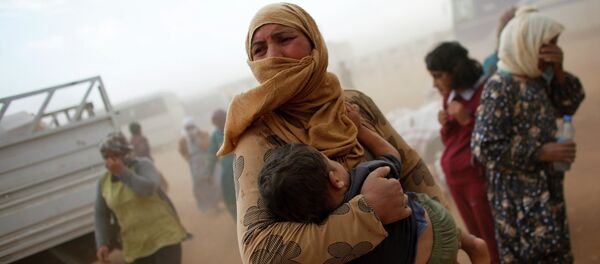Earlier this week in Geneva twenty-eight countries agreed to resettle more than 100,000 refugees from Syria. According to the UN refugee agency (UNHCR), this would double previous quotas for admitting refugees for resettlement.
"We continue to encourage countries to resettle the most vulnerable refugees in the region, regardless of which neighboring country they are in," Lama Fakih, a spokesperson for Humans Rights Watch, said commenting on the results of the UNHCR pledging conference in Geneva. She added that those in need of most urgent resettlement include "women, survivors of torture and other violence, refugees with disabilities, and LGBT individuals."
Countries that border Syria such as Jordan and Lebanon have been under significant pressure in hosting millions of Syrian immigrants. Lebanese Social Minister Rachid Derbas stated earlier, that with 1.1 million refugees, one in three people in Lebanon are Syrian. He emphasized that Lebanese citizens along with Syrians are facing job shortages, overcrowded schools and hospitals, and high prices. In his turn, Jordanian Interior Minister Hussein Hazza Majali warned countries that the 630,000 refugees are "stretching" his country's "meagre resources".
UNHCR reported that only 66,254 out of 100,000 spots for refugee resettlement, pledged on Tuesday, were confirmed. The exact quotas for each country, participating in the resettlement program, are still unknown, but Germany, Sweden and the United States along with Norway are still the biggest host countries for Syrians outside the Middle East.
According to Agha, some 30,000 Syrians have come to Sweden since the beginning of unrest in Syria in March 2011. He pointed out that this Scandinavian country now routinely gives permanent residency to Syrian refugees. "If the immigrant has all the necessary documents, he can be granted asylum in less than a month," he added.
Once refugees arrive in Sweden, they go to a welcoming center where they are meant to spend several days. After that Swedish Immigration Services offer them accommodation in towns across Sweden, Mahmud Agha informed. Refugees receive financial and medical assistance; they are offered social adaptation and language courses at no cost. "It is truly a haven for many of them," he concluded.
Peaceful protests began in Syria in March 2011 and quickly descended into all-out fighting between government forces, rebels and jihadists, some of them linked to al-Qaeda. According to UN estimates, the ongoing conflict has forced as many as 3.2 million Syrians to flee their homes.






